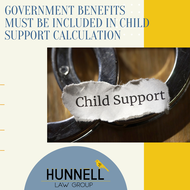 Hollywood has no shortage of cautionary tales, even when it comes to Estate. Celebrities like Aretha Franklin, Chadwick Boseman, Prince and Robin Williams all had family members in Court due to poorly prepared or nonexistent estate plans. Anne Heche and Lisa Marie Presley are the most recent examples of high-profile conflicts over celebrity estates. Months after the deaths of both stars they were still making headlines because their families were fighting over control of the Estates. Heche’s 20-year-old son and her former partner fought over control of her estate because Anne Heche did not have a last will and testament. Heche’s former partner relied on an email from 2011 to Heche’s lawyer stating that she wished for her partner to control her estate for the benefit of her children. He also argued that Heche’s 20-year-old son was too young to administer the estate. Ultimately, after four (4) months, the Court imposed California’s intestacy laws and confirmed that Heche’s son would administer the estate. Lisa Marie Presley’s mother, Pricilla Presley, and daughter, Riley Keough, went to Court to determine who should be trustee of Lisa Marie Presley’s estate, which was held entirely in trust. Pricilla Presley was originally named trustee, then some years later, the trust was amended to name Riley Keough and her brother (who predeceased Lisa Marie) as trustees. The crux of the argument was over the legitimacy of the document naming Keough and her brother as trustees. Some of the issues with the document were that it only existed as a PDF copy, not an original; Pricilla was not notified of her removal as trustee, which is required under California law; there were no witnesses or notaries; and there was a question over whether the signature was legitimate. Seven (7) months and many court hearings after Lisa Marie Presley’s death, the administration of her estate was settled out of court. Sadly, Heche’s situation is not unique. According to some estimations, 68% of Americans do not have a Will.[1] As you can see from Anne Heche’s situation, the lack of a Will can become a major problem for the family that you leave behind, especially if any family members disagree as to who should be in charge of your estate. The best and most effective way to manage your estate is to execute a Last Will and Testament, which sets forth your wishes for your property, and even the care and custody of your children, upon your death. As was evident in the case of Lida Marie Presley, it is especially important that your Will, and other Estate Planning Documents, are prepared and executed in accordance with the laws of the state in which you reside at the time of your death. In New Jersey, there are specific statutory laws that must be followed in order for a Will, Trust, Codicil, etc. to be legitimate and “self-proving” in the eyes of the Court. Prepared and hand-written documents have different requirements under the statute. If there is any question over the legitimacy of an estate planning document, it invites conflict. The best way to avoid this conflict is to have an attorney prepare your estate plan. Family disagreements are not unusual, same is true when a loved one dies. Recently, our firm had to resolve a case that involved a disagreement as to the funeral control of a deceased family member. This disagreement caused the funeral home to delay the funeral process for over two weeks! If you do not arrange your funeral before your death, you can set forth a funeral agent in your Will to take control of the planning of your funeral and avoid any disagreements or delays. Be sure to put your wishes down on paper, putting it off until a later date that may never come could result in turmoil for your family while they are still grieving. If you already have a Will, take some time to make sure complies with the statutory requirement and make sure it is up to date. Give yourself some peace of mind and lay out an effective plan of action for your family. Contact Hunnell Law Group today to start your Estate Planning. https://www.hunnelllaw.com/contact [1] https://theconversation.com/68-of-americans-do-not-have-a-will-137686; https://www.caring.com/caregivers/estate-planning/wills-survey/; https://www.aarp.org/money/investing/info-2017/half-of-adults-do-not-have-wills.html
0 Comments
Divorce is challenging enough, trying to decide how to divide assets and establish a fair amount of support. The last thing you might want to think about is taxes. But it is equally important to understand the tax implications of your decisions (or indecisions), as they can save you from future headaches and financial strain. Here are some essential tax tips to consider: During your divorce you should consider these practical tips: Handle Property Transfers Correctly Transfers of property between spouses as part of the divorce are usually non-taxable events. These types of transfers are generally specified in the Marital Settlement Agreement. However, you must work with your plan provider or real estate attorney to ensure the transfers are handled correctly. Choose the Right Filing Status Your marital status as of December 31st determines your filing status for the entire year. But, even if you’re entitled to file joint, you should still consider whether filing jointly or separately makes better financial sense. If you’re living separate and apart, you may also want to consider whether you file as head of household (instead of married filed separately). Don't Forget About Retirement Accounts Dividing retirement accounts can have tax or other financial consequences, if not properly transferred. For example, you may incur penalties if you liquidate a retirement account, instead of having it transferred directly to your spouse by way of a Qualified Domestic Relations Orders (QDROs). Most important is to ensure the language in your Settlement Agreement regarding how these types of assets are to be transferred is specifically articulated, which should include language that confirms the asset is being transferred through a “tax-free rollover”, for example. After your divorce, these essential tax tips are a must: Update Your Withholding Change in your marital status usually means a change in the tax withholdings outlined on your paycheck. To ensure you have made the correct election, file a new Form W-4 with your employer to reflect your current situation. Real Property Transfers Usually the marital home (or other real property) is transferred post-divorce. When transferring real property in New Jersey, you must be aware that there is a ninety (90) day timeframe to complete the conveyance, if you want to be exempt from the realty transfer tax. Meaning, the Deed must be recorded within 90 days of the divorce being final. Understand Alimony Tax Treatment Alimony and spousal support established after 2018 are not tax-deductible for the payer and are thus not taxable to the recipient. Claiming Dependents The custodial parent generally has the right to claim the child as a dependent. However, we routinely see parents alternating the dependents or if there are more than one, splitting them. In that event, the parties must agree and must file the appropriate form. Please note that these tips are just that, tips and general information. This is not tax advice. What you should do in your situation, depends on the specific facts of your case. Also, keep in mind, most divorce lawyers (HLG included) are not tax lawyers, so if you are unsure what to do, we encourage you to seek professional advice from a tax expert. Tax laws are complex, and getting professional advice can be invaluable during this transitional period.
This blog post published in April 2024 provides a starting point for individuals think about taxes during divorce. Tax laws change overtime, so staying updated is crucial. Kim and Ye: A Lesson in What Not to Post on Social Media During Your Divorce
By now, everyone knows that Kim Kardashian and the Rapper Ye, formerly known as Kanye West, went through a very public divorce that recently settled. While it appears that Kim has moved on and Kanye may already be remarried, we can still learn from the social media frenzy that followed their divorce. Kim filed for divorce in 2020. Their divorce made headlines when Ye began posting on Instagram to express his frustration with Kim and the entire divorce process. His posts included text messages directly from Kim and comments about her parenting of their children. Kim responded in kind only once, telling him to speak to his attorney. All of Ye’s posts have since been deleted. The posts have invited public opinion into a very private matter. Unfortunately, this behavior is not reserved for public figures. Many find themselves subjected to public scrutiny when their spouse decides to post the details of their divorce, negotiations of same, and instances of conflict caused by the separation of the divorcing parties. What Ye and other divorcing parties do not understand as they are hitting the “post” button is: In California, just as in New Jersey, social media posts are admissible as evidence in a Court of law. What does that mean? Custody, equitable distribution, child support, spousal support etc. can all be affected by what you post on your social media. 1. Never write anything on any of your social media accounts that you would not want a Judge to hear. While social media is a reflection of your real life and many people use it to document events in their life, do not use social media as an opportunity to document your divorce. Don’t use social media as a diary or to update your friends as to this really big life event. If you got a new car, went on vacation, etc. That’s awesome! Don’t post it on social media and then attempt to negotiate a low alimony buyout, or request a downward modification of your alimony or child support post-divorce. A picture speaks for itself. You won’t always have the opportunity to explain the circumstances of the trip – like financing it entirely with airline miles, tagging along on a friend’s all-inclusive vacation or even winning The Price is Right. It is also important to understand that you may not even realize that your posts contain anything relevant or even detrimental to your divorce, but lawyers can and will analyze your posts for information to support your spouse’ position. 2. Don’t use social media in place of a therapist or trusted confidant. Don’t do anything that will intentionally trigger or elicit a response from your spouse. There is no benefit to doing this – it may feel good in the moment, but it often causes more problems during the divorce process. If you really need to express yourself about your spouse, do it with your therapist or your attorney, whichever is more appropriate in that moment. Do not “publish” your thoughts about your spouse, it is not beneficial to you, to your spouse, to your child(ren), or to your overall case. 3. Even if you make your profile private, your spouse may still see your posts. Do not assume that just because you have “defriended” your spouse, your posts are not available to them. Don’t assume that people you are friends with won’t share that information with your spouse. No matter how close you are, there are some people that will take any opportunity to be a part of the “drama.” It is extremely simple for someone to take a screenshot and share it with someone that you did not intend to see it. What should you do if your ex is making these mistakes? Take a screenshot and inform your lawyer. 4. Even if you delete a post, it’s not gone. If you have a moment of weakness and post something you’re not supposed to, or something that looks bad, it doesn’t necessarily disappear when you delete it. Always assume that someone will screenshot your posts. Will it be detrimental to you if it’s posted? Then, don’t post. 5. When in doubt, don’t post. Ultimately, the best practice is to stop posting anything personal on social media during the pendency of a divorce. If you don’t post anything, you don’t give your spouse any fuel for their retaliation. If you do choose to continue using social media, don’t post anything negative about the divorce or your spouse. Don’t use social media as your therapist. Don’t vent or look for support using social media. Obviously, divorce can be an extremely emotional time and you should lean on your trusted support system for support, but don’t do it in a public forum that can be used in the court as evidence, such as social media. At the end of the day, if you are going to continue to use your social media accounts during the course of your divorce, use them sparingly and be conscious about what you are posting. If any part of you thinks “I shouldn’t post this”, don’t post it. If this seems like too many rules for you, consider taking a break from social media, or at least a break from posting, until your divorce is finalized. 6. It’s not over ‘til it’s over. Finally, just because your divorce is finalized doesn’t mean you should stop being mindful about your social media posts. Many of the terms of a divorce agreement are modifiable, especially those concerning your children so make sure you are not posting anything that could be a cause to modify your agreement. If you’re concerned about something you’ve posted on social media or you have seen something concerning on your ex-spouse’s social media, take a screenshot and contact us at HunnellLaw.com/Contact to determine the best way to address the issue. After weeks, months, or even years of what feels like the hardest time of your life: it’s over. You’re finally divorced and now you can kick back and relax, right? Not quite. After your divorced is finalized, before you can settle in you have to tie up those loose ends and actually complete the process. Here’s a general list to guide you through the next steps:
2. Change your Passwords Netflix, Facebook, Email, Bank Accounts, Retirement Accounts, the list goes on. In this post-pandemic world, we rely more and more on online accounts and resources. The fastest way to access these accounts is, obviously, using your passwords. I think we have all heard stories of people finding out that their ex still has access and is using their Netflix account, then they change the Netflix password right before their ex’s favorite show premiers. However, failure to change passwords to your more important accounts can lead to more serious consequences. Your ex’s unauthorized access to your bank accounts, phone records, etc. can be an invasion of privacy and in some cases can be outright dangerous. Make sure that you take the time to change all of your old passwords, even if you are unsure that the other person knows or has access to them. 3. Update your Privacy Settings Now that you’ve changed your passwords, make sure that your online accounts are secure by changing your privacy settings. Many accounts can be accessed through social security numbers or personal questions for gaining access. If you filed joint tax returns, your ex has your social security number, they probably also know your mother’s maiden name and the name of your first pet. Change your settings to make sure you are the only one with access to your information. 4. Change your Name If you were granted a name change as part of the Judgment of Divorce, make sure that you update all of your accounts, get your new Social Security card, update your license and let your employer know that your name is legally changed. 5. Bank Accounts and Credit Cards Make sure that all of the joint accounts, including bank accounts and credit cards, are closed in accordance with the terms of the divorce. If necessary, establish your own private bank account. 6. Update your Beneficiaries Make sure that your beneficiaries are updated on your bank accounts, retirement accounts, life insurance policies, etc. You should also take time to update your Last Will and Testament and any other estate planning that you have done. These are just a few of the steps you should take after your divorce is finalized. If you have any questions about this topic or divorce in general, or if you need assistance adjusting the terms of your Judgment of Divorce, reach out to us at HunnellLaw.com/contact to speak to an attorney.  Fighting with Family: Co-Parenting During the Holidays For many, the Holiday Season is full of cheer excitement and love. For others, it’s a time of stress and emotion. For parents who are co-parenting for the first time after a divorce, the Holiday Season can bring about difficult challenges and emotions that are brand new and hard to navigate. Co-Parenting is tough, regardless of the time of year. However, this time of year is especially challenging. Parents are obliged to miss time with their children during the holidays, abandoning family traditions and forced to implement new ones. Arranging time with extended family, going to pageants, concerts, and year-end parties all while navigating this new family arrangement can be overwhelming. Time Sharing The best way to navigate co-parenting during holidays is simply to make sure that you have a plan. If you have advance notice, it’s easier to make arrangements with family and friends, etc. to see your children for the holiday or introduce new family traditions. Your parenting time agreement should implement some form of time sharing for holidays and special days. Some parenting plans even reference Court Holiday Schedules as the default parenting arrangement. The key is to make sure that you have an arrangement in effect for parenting time over the holidays well in advance so that if there are any issues or changes that have to be made, both parents can address them and make their own plans with the children. If your child’s other parent refuses to allow you to see your child over the holidays, you do have options. If you have an agreement that allots specific holiday parenting time and the other parent is not abiding by that agreement, you should consider mediation or counselling. If that is not an option, you may make an application to the Court to enforce that agreement. However, it is important to note that both at Thanksgiving and the week between Christmas and New Year’s Day, the Judges are not all present and, therefore, the Court only hears emergent matters. Emergent applications are made when the issue cannot adequately be addressed within a typical twenty-four day motion period and must be heard immediately. You should contact an attorney to determine whether your case could be considered emergent and heard by the Court during that time. Most holiday parenting time enforcement applications are not emergent. In that case, you will have to file an application with the Court that will not be heard until at least twenty-four days after you file your application. If you do not have a parenting time arrangement that addresses parenting time, you can try to make arrangements on your own in writing, or agree to attend a mediation to establish a holiday parenting time agreement. Again, make sure you give yourself enough time in advance of the holidays, so any issues that have to go before the Court can be resolved in advance of the holidays. If you cannot come to an agreement with your co-parent, then you will have to file an application to establish a parenting time arrangement. Again, this will not typically be considered an emergent action, although you should consult with an attorney if you think it could be. In most cases, it will take that same twenty-four days, at least, for your application to be heard by the Court. Acknowledging the Best Interests of the Child Do not put your child in the middle of any conflict. The best interests of the child is the guiding principle for all family law matters in New Jersey. In all aspects of co-parenting, including time sharing, it is important to remember that you should be serving your child’s best interests, not your own. After you finalize your holiday parenting time arrangement with the other parent, make sure to spend some time talking to your child about what to expect during the holidays and acknowledging and managing their emotions. Try to be flexible with your own expectations. Of course, all parents want to be with their children on Christmas morning, but if that means that you force your spouse to drive through a blizzard to effectuate your parenting time, that’s probably not in the child’s best interest. Likewise, if great-grandma is going to be a Christmas dinner at the other party’s house and great-grandma has been very ill and your child would like to see them, it may be beneficial to your child to see their grandparent. When you do have your child with you for holiday parenting time, make sure you’re cognizant of the conversations happening around your child. Do not let your family and friends disparage the other parent in the presence of your child. If you anticipate your family saying things that could make your child uncomfortable, it may be worth it to have a conversation with your family and friends ahead of time. There’s always next year It is important to remember that this Holiday Season is not be-all and end-all. If something did not work this year, make sure that you address it before next year. If there was a problem that needs to be addressed in mediation or by the Court, make sure to address it sooner than later, so that everything is in effect for next year. If you have any questions or concerns about how to navigate the holidays as a co-parent, visit HunnellLaw.com/contact to request an appointment with an attorney.  Did you know that if your child receives any type of derivative government benefits (like social security) that amount must be included in the child support worksheet; and if the amount exceeds your total obligation, your child support could be set at $0, retroactive to your date of disability. In the NJ – there is a statute that says child support cannot be terminated retroactive beyond the date of filing of the application or motion for the reduction of child support. Despite this statue the Hunnell Law Group was able to successfully reduce our client’s child support to 2009 and in doing so, we secured a six-figure credit for the overpayment of support. Why/How? Because in addition to emancipation, the receipt of derivative government benefits is an exception to the anti-retroactivity statute and a payor is entitled to relief going back to the date of their first application (or the date of disability, depending on the circumstances). In our case, the appellate division confirmed our argument that when a parent is receiving child support and social security benefits for their children, they are actually being paid twice, which results in a windfall to the parent of primary residence since there is no entitlement to the second payment. In our case, our client on his own, filed a motion for the reduction back in 2009. Unfortunately, the court found that he did not provide all the appropriate paperwork. He tried again in 2010 and again his papers were denied. He essentially gave up and was subject to having is license suspended, passport revoked, and even bench warrants because he simply wasn’t able to afford support. That’s when he found us and we doggedly worked his file because we knew that the just result was a credit. If you want to learn more, click here to read the full case. 8/18/2021 New COVID-19 Related State Legislation: ANOTHER Eviction Moratorium Update & Utility Assistance for TenantsRead NowBy Ryan Westerman, Esq.
Governor Murphy recently signed Senate Bill No. 3691, appropriating $750 million in federal funds to provide rental and utility assistance for qualifying New Jersey residents: $500 million is allocated for rental assistance, and the remaining $250 million is for utility assistance. The programs are administered by the New Jersey Department of Community Affairs. The law adds new limits on who is protected by eviction moratorium. New Jerseyeans with household incomes below 120% of the Area Medium Income (a/k/a/ AMI, where “Area” refers to the county the resident lives in) will continue to be protected from eviction through August 2021. New Jerseyeans with incomes below 80% AMI are protected until January 1, 2022. Continuing reading for additional details. Other highlights of the bill, as summarized by Governor Murphy’s office include:
Do you think you qualify for any of these protections or need assistance in complying with these requirements? Schedule a strategy session with the Hunnell Law Group today! 8/9/2021 Recent NJ Appellate Decision Chips Away at Eviction Moratorium Protections: Talmadge Village, LLC. v. Keith WilsonRead NowBy Ryan Westerman
On July 1, 2021, the New Jersey Appellate Decision issued a decision in the case of Talmadge Villages LLC v. Keith Wilson, Docket No. A-0590-20 (App. Div. 2021. The court published the decision thereby making it precedent for similarly situated cases that are currently pending or may arise in New Jersey Superior Court. The issue before the Court was whether the trial court erred in staying a previous order, preventing the ejectment of the defendant based on Governor Murphy’s Executive Order 106, forbidding evictions in response to the COVID pandemic. Plaintiff argued Executive Order 106 does not apply to the defendant in this case due to the absence of a landlord/tenant relationship. Plaintiff argued the defendant was a “squatter” by legal definition and thereby not entitled to the protected afforded by the moratorium. The Court agreed: “Because we do not believe the governor’s moratorium on eviction extends to persons having the legal status of squatter, we vacate the stay.” The facts of the case are relatively simple. The defendant’s girlfriend resided in an apartment owned by plaintiff. She declined to renew her lease and vacated the property. Plaintiff learned defendant took residence of the property during an inspection of the premises, then issued a written demand to vacate. The defendant was never party to the previously existing lease (only his girlfriend was) nor did he ever pay plaintiff rent. The trial court issued an order for possession in plaintiff’s favor, ordering defendant to vacate. The judge then put a legal stay on the enforcement, citing Executive Order 106 as the legal justification. In effect, the defendant was allowed to stay in the apartment until the eviction moratorium ended. Plaintiff appealed. The Appellate Court reversed the trial court’s stay: Since defendant neither rented nor owned the subject premises when the trial court issued its…order, and plaintiff sought defendant’s removal from the residential property by way of ejectment, rather than an eviction or foreclosure proceeding, we are convinced defendant’s removal from the apartment was not barred under Executive Order 106. From a legal standpoint, the Appellate Court has solid legal justification for its ruling by distinguishing “ejection” from an “eviction”. Executive Order 106 is absent any ejectment language, creating a loophole for plaintiffs to recover occupied property through an ejectment procedure. With the same pen stroke however, the Court also slashed at the public policy behind the Order 106: …housing security and stability are important to public health, particularly as homelessness can increase vulnerability to COVID-19; and…removals of residents pursuant to evictions or foreclosure proceedings can increase the risk to those residents of contracting COVID-19, which in turn increases the risks to the rest of society and endangers public health. Read the Appellate Court’s full decision here. 8/2/2021 Yet Another N.J. Eviction Moratorium Update: Protections For “Very Low”, “Low” & “Moderate” Income HouseholdsRead Now By Ryan Westerman Because the flurry of legislation, executive orders, changes to that information, and the confusion surrounding the eviction moratorium over the last 16 months just hasn’t been enough for renters, the State’s legislatures passed new a bill this week. Curiously, the new bill bifurcates protections from a previous bill signed into law mere weeks ago, which extended the eviction mortarium until January 1, 2022. Bill s3691 mirrors the eviction protections from the most recent law (which statutorily codifies Governor Murphy’s Executive Orders from 2020) for “very low”, “low”, and “moderate-income” households. The bill defines very low income households as those earning annual income of 30% or less of the county’s median income; low income households earn 50% or less; moderate-income households earn more than 50% but less than 80%. Any household that earns more than 80% of their county’s median income will only be shielded from evictions until August 31st when and if the bill becomes law. The measure passed both of the State’s legislative bodies without any no votes. Pretty unprecedented given the divisive political climate. The bill now sits on the Governor’s desk. Murphy is vocal about the renters’ need for government support, made clear when he signed legislation extending the moratorium until January 1, 2022. Now, his veto of the bill will be purely ceremonial based on the voting track record of both State Senate and Assembly members. Both chambers’ votes this week are clear indication of what lies ahead. Bill s3691 makes further distinctions amongst renters. Notably, those renters whose inability to pay rent is COVID related, and those whose are not. In debt renters that fell behind for other reasons will no longer receive pandemic protection and will face eviction. This appears to strike a reasonable balance between the landlords’ needs to collect rent revenue to sustain their businesses, and the public health concern of making the most financially vulnerable sections of the population homeless, as vaccination rates rise and the pandemic peters out. What it does not do is provide any solution for the tens of thousands of New Jerseyans facing eviction in 6 months of time, but merely kicks the can down the road … all the way into 2022.  Jackson Township police are asking for the public’s assistance in cracking down on an unusual “crime”. It’s a violation that even as I an attorney (and many of the attorneys I discussed this with) didn’t know existed: illegal swimming pool rentals. Jackson Township ordinances 350-6 and 350-7 prohibit the rental of or advertisement of any pool rental. Authorities learned of the unlawful rentals from neighbors where the violations occurred. Code Enforcement is using social media postings to identify and gather proofs of which properties engaged in the improper conduct and are asking anyone who recognizes the online postings featuring the pools or yards in question to report them. This took me by complete surprise. Jackson residents who received citations may have been equally surprised. Even though property ownership does come with restrictions on how one can use them, it never occurred to me that a pool could not be rented, especially given the rise of pool sharing apps such as Swimly. I wondered if this same ordinance exists in my own area. I went to Asbury Park City Code to see if the city has similarly situated ordinances. I found the usual swimming pool regulations, pertaining to issues such as zoning, enclosures, permit costs, and property lot requirements. But what I didn’t find was an ordinance explicitly prohibiting a pool owner from renting their pool to a non-occupant of the property. Admittedly, I was half-expecting to find a rule on this issue, given Asbury Park’s restrictions on short term rentals like AirBnb. Presumably, the policy behind prohibiting short term rentals and pool rentals overlap: to ensure the use and enjoyment of the neighboring properties is not impacted by the renters who have no attachment or concern for the local population’s quality of life. However, there are none on record that I was able to find. I did a little more digging. Asbury Park defines a short term rental to be: …when a property rents out their property, or a permitted part of their property (such as a bedroom), to a guest for a short (30 day or less period…Short terms rentals are usually facilitated through the use of online companies such as AirBnB, HomeAway or VRBO (Vacation Rental by Owner), and other similar websites. The phrase “permitted part of the property” gives me pause. Could this ordinance be applied to pools? Analyzing the context of the document in its entirety suggests the restriction is only applicable to inhabitants residing in the property, rather than using a property’s features. A court may interpret it differently which potentially would expand the scope of the ordinance to include all segments of a property: a backyard, a basketball court, or a roof top deck, to name a few. Only judicial enforcement of the ordinance will provide an answer to this question. In sum: be careful what you post online! |
Details
Contributors:Stephanie Hunnell, Esq. , Ryan Westerman, Esq. and Caitlin Holland, Esq. Archives
April 2024
Categories
All
|
|
Hunnell Law Group, LLC is conveniently located at 908 Main Street., Asbury Park, NJ 07712
You can contact us at 732-749-3500 or by facsimile at 732-749-3503 Attorneys serving Asbury Park, Avon-by-the-Sea, Belmar, Manasquan, Bradley Beach, Freehold, Toms River, Fair Haven, Red Bank, Manalapan, Marlboro, New Brunswick, Jackson Township, Brick, Howell, Asbury Park, Ocean Township, Eatontown, Wall Township, Neptune City, Neptune Township, Spring Lake, Wanamassa, Lake Como,
Monmouth County, Ocean County, Middlesex County, and Mercer County, in Central New Jersey. |
© 2019, 2020, 2021, 2022, 2023 Hunnell Law Group, LLC, all rights reserved. Disclaimer & Site Map & Privacy Policy.
No aspect of this advertisement has been approved by the Supreme Court of New Jersey.



 RSS Feed
RSS Feed